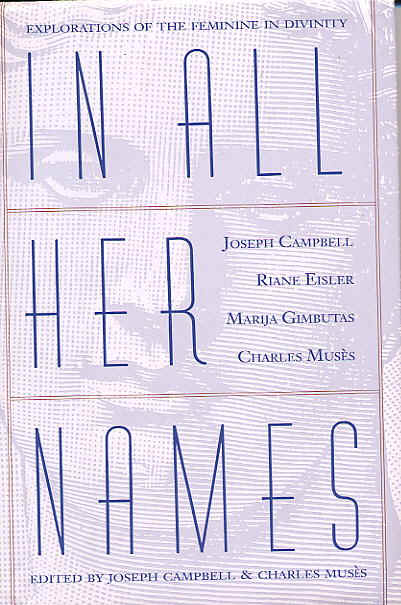*
AVE ATQUE VALE
To rephrase Catullus' poignant "hail and farewell" we may well be saying it, in this critical era, to all past ages. What good we can salvage and promote for those who follow is the great question today.
From even a cursory study it soon becomes evident that the process of human history has been wasteful and destructive. This becomes even more evident when it is compared with the development of other systems of life forms on our richly endowed planet. The prime problem of our times, then, is how to optimize the development of human society, which means nothing less than global human society in an age of very fast feedback/feedforward loops generated by the electronic and electromagnetic communication technology that has pervaded the twentieth century and will continue, with advances in fiber optics and laser beams, to pervade the twenty-first unless some decisive historical discontinuity intervenes.
One of the first things history shows us is that it proceeds by overshoot and cutback, which is simply another form of the age-old learning process of trial and correction. Such correction is, of course, in terms of the best approach or approximation to some predetermined goal or selected standard by which results are valued and assessed.
So far so good. But what makes matters sticky in historical reality is that such predetermined standards have often been either not the most desirable in the long or even short term, or else were from the start riddled with unviable assumptions bound to bear bitter fruit. One of the commonest historical failings is for some current leadership to be so carried away by seductive features of its chosen aim as to become almost totally blind to the deleterious consequences of the wholesale adoption and application of such goals in practice. The usual historical process has been often disastrous in terms of unachieved social goals, especially since the advent of the new social caste of "scientists," who have come to speak with more social authority than any group since the ancient priesthoods.
As a few examples, we need but cite the host of synthetic drugs with harmful side-effects, the failure of centralized national economies that inhibit initiative and creativity, and the increasing failure of pollutive industrialization to achieve long term social good; not to mention the process of more efficient military technology resulting in long-term counterproductive feedback.
The Gulf War of 1991 is the latest case in point, which far outdid the bombings of Dresden and Nagasaki and engaged in the systematic and high-speed destruction of the life-support system of an entire nation's civilian population. It did not enter the military steersmen's tunnel vision that there is no cybernetic difference between a small-time terrorist setting off a bomb in a crowded cafe and his big-time counterpart dropping one on a crowded civilian air shelter. The essence of all such methods is their cybernetic idiocy: their utter lack of taking into account the counterproductive consequences they inevitably generate.
What, then, is the approach that will stop such short-term "success" methods with their built-in long-term failures from dominating human history more and more dangerously? The reason for the qualification "dangerous" is simple: current technology has so magnified the speed and magnitude of consequence-loops, that the earth could actually be rendered unlivable if the processes that have dominated past human history are not now modified. And long before the planet became unlivable it would become plunged in such pervasive dissatisfaction that social unrest (and the resulting police-state lashbacks) would mount to exponential proportions.
The time scale for such critical phenomena is no longer comfortably long, and reliable projections place the crucial range of years between 1992 and 1999. It is then that the decisions will have been made and the steermanship done that will entrain the twenty-first century in a net of consequences, whether for good or ill.
Let us back up for a moment to the historical process of trial and correction, a more accurate term than "trial and error" since the latter if taken at face value could produce no improvement. The key factor here is to make reasonably sure that the values in whose service we do the correcting are viable in the long term; and, if not, to be flexible and aware enough to change them as soon as early warning signals arise, such as growing discontent. Short-sighted political leadership ignores this caveat with impunity.
We have paid lip-service to Copernicus but in reality have continued a most narrow anthropocentrism in our dealings with the natural environment. Carried away by obsession with the supreme importance of humans over anything else, we have well nigh forgotten how we necessarily depend on our own intestinal flora to keep alive and healthy, or how much we need one of the simplest life-forms - the diatoms of the phytoplankton - as an important factor of our oxygen supply, which is also ensured by the still not yet understood but tremendously pervasive and universal physical effect of gravitation without which all our atmosphere would dissipate into space in a trice. Thus gravitation is a biological necessity and ecology includes physics.
The choice is ours. Ask not for whom the bell tolls: it tolls for thee. Shakespeare adds to Donne some final words we disregard today at our peril: "We teach bloody instructions which return to plague the inventor, and even-handed justice condemns the ingredients of the poisoned chalice to our own lips." Let us take heed, and go forward towards health and sanity.
It is to point the way to such happier and viable alternatives that this book was written. Let us then step out into hope.

